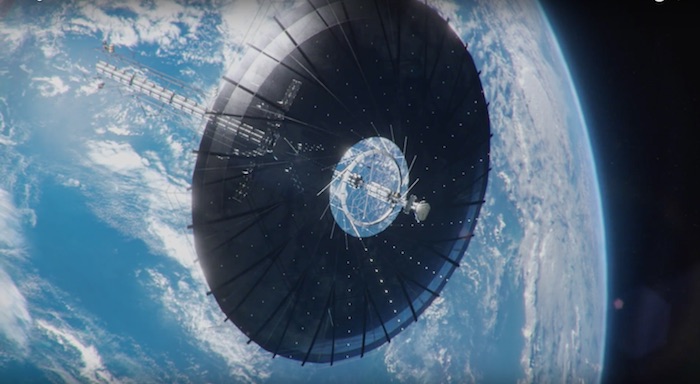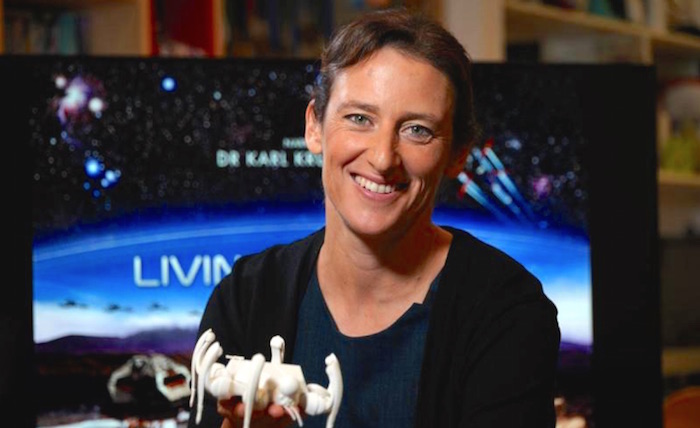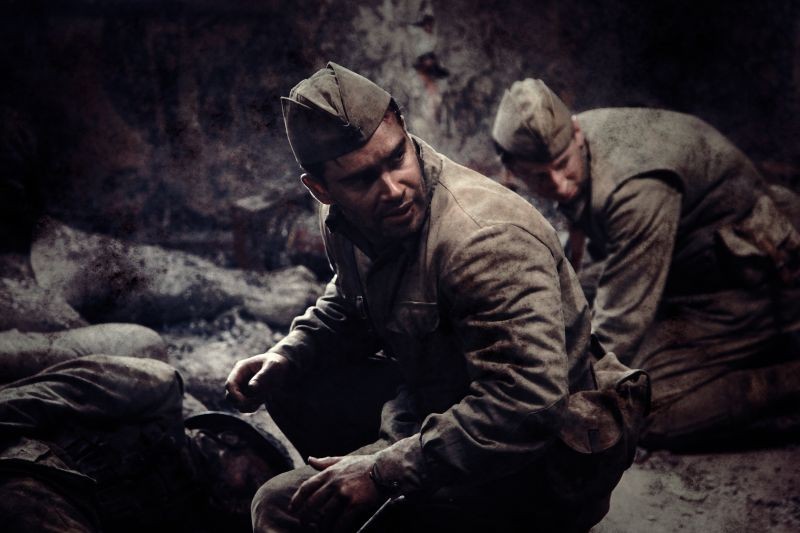LIVING UNIVERSE
 Saturday, August 4, 2018 at 6:57PM
Saturday, August 4, 2018 at 6:57PM Narrator: Dr Karl Kruszelnicki
Featuring: Natalie Batalha, Gentry Lee, Avi Loeb, Karin Öberg, Sar Seager, Steve Squyres and the voice of Prof. Tamara Davis.
Rating: 4/5

Melding mesmerizing CGI visions of interstellar starscapes and alien worlds with earthbound wisdom and state-of-the-art tech provided by some of the greatest minds in space science, the Australian/French co-production Living Universe will leave both dreamers and doers pining for what the future folds.
Not for the first time in movie history, posing the question ‘Are we alone?’ proves to be the entry point for a terrific film experience. Mulling over the connotations of that questions are the likes of Steve Squyres, NASA Space Science Advisory Committee chairperson; Swedish astrochemist Karin Öberg; JPL Chief Engineer Gentry Lee, currently serving NASA’s Planetary Flight Systems Drectorate; astrophysicist Natalie Batalha, Mission Scientist on NASA’s Kepler initiative; and, Avi Loeb, Harvard’s Professor of Science.
As the collective might of this academic hive-mind ponders the hows, where and whys of intergalactic exploration, the journey of the A.I.-piloted spacecraft Aurora to the distant ‘exoplanet’ Minerva B unfolds, 150 years from now. These sequences are gorgeous flights of fancy, conjured by effects gurus tasked with crafting galaxy clouds, meteor storms and, ultimately, ‘flesh and bone’ manifestations in answer to the question originally posed.

The production stops short of going full-Avatar; to undertake a dirt-to-civilization exercise in world building is best left to the budgets of Hollywood studios. Living Universe instead imagines that the very first moments of contact and discovery, enabled by drone-tech and spider-bot androids, will be at a base biological level but no less wonderful or awe-inspiring because of it.
The narration of Aussie celeb-scientist Dr Karl Kruszelnicki will play better with international audiences; local patrons may be too familiar with his floral-shirt public persona to fully accept him in such an earnest mood. That said, his contributions clearly convey information and succinctly posit theories and conjecture that may be otherwise daunting for non-space types.
Emerging as the most engaging presence is Australian astrophysicist Tamara Davis (pictured, above), who vocalises the A.I. operating system ‘Artemis’ aboard the Aurora. Unlike ‘Mother’, the femme-voiced super-computer of the Nostromo in Ridley Scott’s Alien, Davis’ cyber-conscience proves empathetic, inquisitive and ideal as Earth’s ambassador at the point of ‘first contact’.
The WORLD PREMIERE Australian Season of LIVING UNIVERSE commences August 9 at Event Cinemas nationally; from August 11 at Hayden Orpheum Picture Palace (Sydney); and, from August 30 at IMAX Melbourne Museum. Check the official website for other venues.
 Australian film,
Australian film,  Documentary,
Documentary,  IMAX,
IMAX,  Space Travel
Space Travel 
